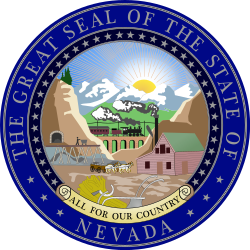Campaign
Early in the campaign, Reid held a double-digit lead over Ensign in most polls. After a fierce battle of attack ads on television by both candidates, Ensign pulled into a dead heat with Reid. This reversal of fortune was attributed to several factors. More than 125,000 new residents had arrived in Nevada since 1992, many of them settling in Ensign's suburban Clark County congressional district. As such, many of them were more familiar with Ensign than with Reid, whose previous Republican opponents had hailed from other regions of the state. Republican consultant John Maddox observed that Ensign's greater familiarity to the Las Vegas metropolitan region gave him an advantage, adding that "he has won votes from Democrats who have never voted for Reid." In contrast, Reid was believed to hold an advantage with longtime Nevada residents, particularly those in slower-growing regions of the state. In addition, the number of registered Republicans in Nevada had dramatically increased as well; in 1992, Democrats had held an advantage of approximately 40,000 registered voters, but by 1998 Republicans outnumbered Democrats by 4,000. Jon Ralston, a political analyst in Las Vegas, claimed that Reid was also hurt by declining voter enthusiasm in the wake of the Monica Lewinsky scandal. Reid had been one of the first senators to express dissatisfaction with President Clinton over the scandal, describing the president's behavior as "immoral." [2]
During the campaign, Reid cited his efforts to block the storage of nuclear waste at the Yucca Mountain repository, while also using the issue to attack Ensign. In one campaign speech, Reid claimed, "You send Ensign to the Senate, you send nuclear waste to Nevada." Ensign responded to the attacks by pointing out his own position against the depository and indicated he would work with Richard Bryan, the state's other senator, to stop it. "Bryan's a Democrat who works with Republicans," he said, "and I'm a Republican who works with Democrats." The Reid campaign also attacked Ensign as an "extremist" who would weaken Social Security and referred to environmentalists as "socialists." Ensign, meanwhile accused Reid of supporting tax increases in Washington even as he claimed to support lower taxes at home. [2]



